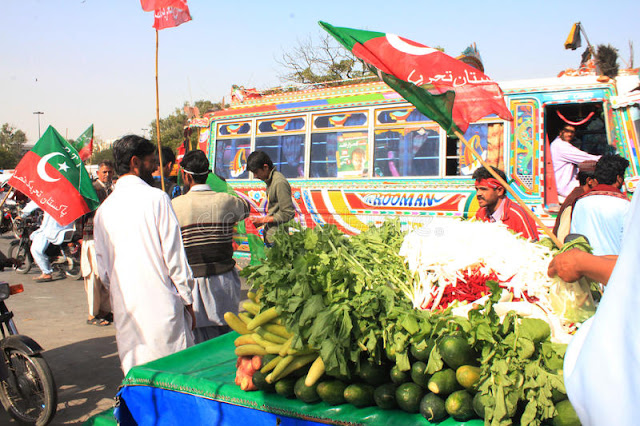Pakistan has been going through a tumultuous period in its political landscape. From allegations of corruption to rising inflation, the country is facing multiple challenges that have been testing the stability of its government. In this blog, we will explore the current politics of Pakistan and the issues that have been dominating the headlines in recent months.
The Imran Khan government
Imran Khan, the former cricketing legend turned politician, became the Prime Minister of Pakistan in 2018. His party, the Pakistan Tehreek-e-Insaf (PTI), won a majority in the National Assembly, and he took office promising to create a "Naya Pakistan" or "New Pakistan" that would tackle corruption and create economic opportunities for all Pakistanis.
However, Khan's government has been plagued by a number of controversies. His critics have accused him of authoritarianism and of being too close to the military, which has a long history of interfering in politics. Moreover, the economy has been struggling, with inflation reaching record levels and the rupee depreciating sharply against the US dollar.
The opposition
The opposition parties in Pakistan have been vocal in their criticism of the government. They have accused Imran Khan of rigging the 2018 election and have called for fresh elections. In addition, the opposition has been protesting against the government's economic policies, which they say have led to rising inflation and unemployment.
One of the key opposition leaders is the former Prime Minister Nawaz Sharif, who was ousted from power in 2017 and subsequently convicted of corruption. Sharif has been living in exile in London, but he has been using social media to rally his supporters against the government.
Another opposition leader is Bilawal Bhutto Zardari, the son of the former Prime Minister Benazir Bhutto, who was assassinated in 2007. Bhutto Zardari leads the Pakistan People's Party (PPP), which has a strong support base in the southern province of Sindh.
The military's role
The Pakistani military has historically played a powerful role in the country's politics. In recent years, it has been accused of interfering in the political process to protect its own interests.
Critics say that the military has been backing Imran Khan's government to keep a check on the opposition. They have accused the military of using its influence to manipulate the media and to silence dissenting voices.
Human rights issues
Pakistan has also been facing human rights issues, particularly when it comes to its treatment of minorities. The country has a history of persecuting its religious minorities, including Christians, Hindus, and Ahmadis.
Moreover, there have been reports of enforced disappearances, extrajudicial killings, and torture by security forces. The government has been criticized for failing to address these issues and for not doing enough to protect the rights of its citizens.
Conclusion
In conclusion, the current politics of Pakistan is marked by a number of challenges. The Imran Khan government is facing criticism from the opposition, who accuse it of rigging the 2018 election and of failing to deliver on its promises. The military's role in politics and its alleged interference in the democratic process have also been a cause for concern. Finally, the country's human rights issues have been a matter of international concern, and the government needs to take steps to address these issues and protect the rights of all its citizens.


Comments
Post a Comment